Landing that dream college can feel like climbing a mountain. You’ve studied hard, written stellar essays, and now, the final hurdle: the college interview. Nerves might be kicking in, but view this as a golden chance. More than just answering questions, this is your moment to connect, showcase your personality, and solidify why you belong on their campus.
Think of it this way: the admissions committee has already seen your grades and test scores. Now, they want to see you. What makes you tick? What are your passions? How would you contribute to their community?
This comprehensive guide provides expert tips to help you ace your college interview and leave a lasting positive impression. We’ll break down everything from preparation and common questions to follow-up strategies, ensuring you walk into that interview room with confidence and leave knowing you gave it your best shot. Let’s transform those nerves into excitement and get you one step closer to your college dreams.
Preparing for Your College Interview
Preparation is truly more than half the battle. Rushing into an interview without proper planning is like sailing without a map; you might get somewhere, but it’s unlikely to be where you intended. Solid prep work not only builds your confidence but also ensures you can articulate your thoughts clearly and concisely.
Research the College
Going beyond a quick glance at the college website is key. Deeply understand the institution’s mission, values, and academic programs. Tailor your responses to show how you align with their specific offerings and culture.
- Mission and Values: What does the college stand for? Look for keywords and phrases that resonate with you. For example, if a college emphasizes “innovation” and “community engagement,” think about how your past experiences reflect those values.
- Academic Programs: Which programs pique your interest, and why? Connect your academic goals with specific courses, research opportunities, or faculty members. A genuine interest goes a long way.
- Campus Culture: What’s the vibe on campus? Explore student life, clubs, organizations, and traditions. Picture yourself fitting into the community. Browse student blogs, social media, and virtual tours.
- Recent News and Events: Stay current on campus happenings, achievements, and challenges. Being aware of what’s happening shows engagement and genuine interest.
Practice Common Interview Questions
While you can’t predict every question, certain ones consistently pop up. Practicing your answers allows you to refine your thoughts and deliver them smoothly.
- “Tell me about yourself.”: Craft a concise and compelling narrative highlighting your key strengths, experiences, and aspirations. Focus on aspects relevant to college admissions.
- “Why are you interested in this college?”: This is where your research shines. Specific examples from your college research are necessary to demonstrate your genuine interest, and also explain why this particular college is the best place for you to spend the next four years.
- “What are your strengths and weaknesses?”: Be honest and self-aware. Showcase your strengths with concrete examples and frame your weaknesses as areas for growth.
- “What are your extracurricular activities?”: Share your passions and demonstrate your commitment. Speak about the skills you’ve gained and the impact you’ve made.
- “What do you hope to achieve in college?”: Articulate your goals and connect them with the college’s resources and opportunities.
Prepare Your Own Questions
Asking thoughtful questions at the end of the interview shows engagement and genuine interest. Prepare a few questions beforehand, but also be ready to ask follow-up questions based on the conversation.
- Program-Specific Questions: “Can you tell me more about research opportunities in the [specific] department?”
- Student Life Questions: “What are some popular student organizations on campus?”
- Future-Oriented Questions: “How does the college support students in their career development after graduation?”
Conduct Mock Interviews
Practice makes perfect. Conducting mock interviews with teachers, counselors, or family members can simulate the real interview experience and help you identify areas for improvement.
- Record Yourself: Video recording allows you to analyze your body language, tone of voice, and overall presentation.
- Seek Constructive Feedback: Ask your mock interviewer for honest and specific feedback. Focus on both content and delivery.
- Refine Your Answers: Use the feedback to refine your answers, improve your body language, and build your confidence.
Plan Your Outfit
Your appearance matters. Choose an outfit that is professional, comfortable, and reflects your personality.
- Dress Code: Aim for business casual. Avoid overly casual attire like t-shirts, jeans, or athletic wear.
- Comfort: Wear something you feel confident and comfortable in. Avoid anything that is too tight, too short, or too revealing.
- Grooming: Pay attention to personal hygiene. Make sure your hair is neat, your nails are clean, and you are well-groomed.
Review Your Application
Be intimately familiar with your application. The interviewer may ask you about specific aspects of your essays, extracurricular activities, or academic achievements. Refresh your memory so you can speak confidently and accurately about your qualifications.
Mastering the Interview Day
All your diligent prep work comes to fruition on interview day. How you carry yourself during the interview significantly impacts the interviewer’s perception of you. Here’s how to make a stellar impression.
Arrive Early
Punctuality matters. Arriving early demonstrates respect for the interviewer’s time and allows you to settle in and compose yourself before the interview begins.
- Plan Your Route: Account for traffic, parking, or public transportation delays.
- Aim to Arrive 10-15 Minutes Early: This provides a buffer for unexpected delays and allows you to check in and prepare.
- Use the Extra Time: Use the extra time to review your notes, calm your nerves, and visualize a successful interview.
Maintain Positive Body Language
Nonverbal communication speaks volumes. Your body language can convey confidence, enthusiasm, and engagement.
- Eye Contact: Maintain consistent eye contact with the interviewer. It shows you are attentive and engaged in the conversation.
- Posture: Sit up straight with your shoulders back. Avoid slouching or fidgeting.
- Smile: A genuine smile can make you appear friendly and approachable.
- Hand Gestures: Use natural hand gestures to emphasize your points and express enthusiasm.
- Active Listening: Nod, lean in, and provide verbal cues to show you are actively listening and engaged.
Answer Questions Thoughtfully
Your responses are your chance to shine. Take your time, think before you speak, and deliver thoughtful and well-articulated answers.
- Listen Carefully: Pay close attention to the interviewer’s questions. Don’t interrupt or jump to conclusions.
- Take a Moment to Think: It’s okay to pause briefly to collect your thoughts. Rushing into an answer can lead to rambling or unclear responses.
- Provide Specific Examples: Back up your claims with concrete examples from your experiences. Show, don’t just tell.
- Be Honest and Authentic: Don’t try to be someone you’re not. Let your personality shine through and be genuine in your responses.
- Avoid Rambling: Keep your answers concise and to the point. Avoid going off on tangents or providing irrelevant information.
Highlight Your Strengths and Achievements
This is your opportunity to showcase what makes you unique and qualified. Highlight your strengths, accomplishments, and experiences that align with the college’s values and offerings.
- Connect Your Strengths with College Values: Show how your strengths will allow you to contribute to the college community.
- Quantify Your Achievements: Use numbers and metrics to demonstrate the impact of your accomplishments. For example, “I increased membership in the debate club by 20%.”
- Focus on Relevant Experiences: Highlight experiences that align with your academic and career goals.
Demonstrate Your Passion for the College
Show the interviewer that you are genuinely excited about the prospect of attending their college. Express your enthusiasm and demonstrate your knowledge of their programs and opportunities.
- Refer to Specific Programs and Opportunities: Mention specific courses, research opportunities, or extracurricular activities that excite you.
- Connect Your Goals with College Resources: Show how the college’s resources and offerings will help you achieve your academic and career goals.
- Express Your Enthusiasm: Let your passion shine through in your voice and body language.
Be Respectful and Polite
Show the interviewer that you are courteous, respectful, and appreciative of their time and consideration.
- Use Proper Etiquette: Address the interviewer by their title (e.g., Dr., Professor, Mr., Ms.) unless they invite you to use their first name.
- Listen Attentively: Avoid interrupting or talking over the interviewer.
- Express Gratitude: Thank the interviewer for their time and consideration at the end of the interview.
Ask Meaningful Questions
Asking thoughtful questions shows your engagement and genuine interest. It also allows you to gather more information about the college and determine if it’s the right fit for you.
- Prepare Questions in Advance: Have a list of questions ready, but be flexible and adapt based on the conversation.
- Ask Open-Ended Questions: Questions that encourage the interviewer to elaborate and provide detailed answers.
- Avoid Asking Questions That Can Be Easily Found Online: Research the college thoroughly beforehand and avoid asking questions that can be answered with a quick Google search.
Handle Difficult Questions with Grace
Inevitably, you might encounter challenging or unexpected questions. Handling them with composure and grace can demonstrate your maturity and problem-solving skills.
- Take a Moment to Think: It’s okay to pause briefly to collect your thoughts.
- Be Honest and Authentic: Don’t try to fake it or provide an answer you think the interviewer wants to hear.
- Acknowledge the Difficulty: If you’re unsure how to answer, acknowledge the difficulty of the question and ask for clarification if needed.
- Focus on the Positive: Frame your answer in a positive light and highlight what you’ve learned from challenging experiences.
End on a Strong Note
Leave a lasting positive impression by ending the interview on a strong and memorable note.
- Reiterate Your Interest: Express your continued interest in attending the college and thank the interviewer for their time.
- Summarize Your Key Strengths: Briefly reiterate your key strengths and how they align with the college’s values and offerings.
- Express Gratitude: Thank the interviewer for their time and consideration.
- Shake Hands Firmly: Offer a firm handshake and maintain eye contact.
Types of College Interviews
Not all college interviews are created equal. Knowing what type of interview to expect helps you tailor your preparation accordingly. Each interview type is designed to assess different aspects of your candidacy.
On-Campus Interviews
These take place on the college grounds and provide a chance to immerse yourself in the campus environment. It’s an immersive experience that not only allows the college to assess you, but allows you to assess the campus as well.
- Pros:
- Opportunity to see the campus firsthand.
- Immersive experience to gauge the college’s atmosphere.
- More personal and engaging interaction.
- Cons:
- Requires travel and associated expenses.
- Can be more stressful due to the formal setting.
- Limited availability, potentially competitive scheduling.
Off-Campus Interviews
These take place in a neutral location, like a local library or community center, and are often conducted by alumni.
- Pros:
- More relaxed and informal atmosphere.
- Convenient for students who cannot visit the campus.
- Opportunity to connect with alumni and gain insights.
- Cons:
- May not provide the same level of campus-specific information.
- Limited interaction with current faculty or students.
- Can feel less personal compared to on-campus interviews.
Virtual Interviews
Conducted online via video conferencing, these interviews offer a convenient and accessible option.
- Pros:
- Convenient and accessible from anywhere.
- Saves time and travel expenses.
- Allows for a more flexible scheduling.
- Cons:
- Can feel less personal due to the virtual setting.
- Requires a stable internet connection and appropriate technology.
- Potential for technical difficulties and distractions.
Evaluative Interviews
These are formal assessments used to evaluate your qualifications and fit for the college. They often play a significant role in the admissions decision. The main purpose is for the interviewer to assess your qualifications and whether they meet the university’s standards.
- Purpose: To evaluate your qualifications and suitability for the college.
- Format: Structured questions, specific criteria for assessment.
- Emphasis: Academic achievements, extracurricular activities, and personal qualities.
Informational Interviews
These offer a chance to learn more about the college, ask questions, and gain insights from current students or alumni. The main point is for you to learn more about the school and whether it fits your needs, and less about the interviewer assessing you.
- Purpose: To provide information and answer your questions about the college.
- Format: More conversational, less structured.
- Emphasis: Your interests, concerns, and questions about the college.
Deciphering Tricky Interview Questions
Some college interview questions are crafted to dig deeper than surface-level responses. They’re designed to assess your character, critical thinking skills, and ability to handle complex situations. Here’s how to approach these challenging inquiries.
“Tell Me About a Time You Failed.”
This question assesses your self-awareness, resilience, and ability to learn from mistakes.
-
Approach:
- Choose a genuine failure: Select a situation where you genuinely fell short of your goals.
- Take responsibility: Avoid making excuses or blaming others.
- Explain what you learned: Emphasize the lessons you learned and how you grew from the experience.
- Highlight your growth: Show how you applied those lessons to future situations.
-
Example:
“In my sophomore year, I ran for student council president and lost. Initially, I was disappointed and blamed it on a lack of experience. However, I took the time to analyze what went wrong. I realized I hadn’t connected with the student body effectively and hadn’t presented a clear vision for the school. The next year, I focused on building relationships and developing a comprehensive plan. I ran again and won. The experience taught me the importance of listening to others, developing a clear strategy, and persevering through setbacks.”
“What is Your Biggest Weakness?”
This question gauges your self-awareness, honesty, and willingness to improve.
-
Approach:
- Choose a real weakness: Select a genuine area for improvement that is not a disguised strength.
- Frame it positively: Focus on the steps you are taking to overcome your weakness.
- Demonstrate self-awareness: Explain how your weakness has affected you and what you have learned from it.
- Avoid clichés: Steer clear of generic answers like “I’m a perfectionist” or “I work too hard.”
-
Example:
“I used to struggle with public speaking. I would get nervous and stumble over my words. To improve, I joined the debate club and volunteered to give presentations in class. I also practiced in front of a mirror and asked for feedback from friends and teachers. While I still get nervous, I have become much more confident and effective at communicating my ideas.”
“Describe a Time You Faced a Conflict and How You Resolved It.”
This question assesses your conflict resolution skills, empathy, and ability to work with others.
-
Approach:
- Choose a relevant conflict: Select a situation where you faced a genuine disagreement or challenge.
- Explain the situation: Briefly describe the conflict and the parties involved.
- Highlight your role: Explain your role in the conflict and the steps you took to resolve it.
- Focus on collaboration: Emphasize your ability to listen to others, find common ground, and reach a mutually beneficial solution.
-
Example:
“In my role as team captain, I encountered a conflict when two members disagreed on the team’s strategy for an upcoming competition. One member wanted to focus on a more aggressive approach, while the other preferred a more conservative strategy. I facilitated a team meeting where each member could share their ideas and concerns. I then led a discussion to weigh the pros and cons of each approach. We ultimately decided to combine elements of both strategies. We had a great season and it was a win-win.”
“What Makes You Unique?”
This question is designed to see what separates you from other students who might have similar qualifications.
-
Approach:
- Think about your personal experiences that have shaped who you are.
- Make a short list of qualities that you think make you stand out.
- Create an example of what makes you unique, and how that will help you contribute to the university.
-
Example:
“What makes me unique is that I have lived in several countries throughout my life. My dad works for the embassy, and we move to a new country every few years. As a result, I have not only learned other languages, but I understand other cultures and viewpoints. I think that this will allow me to contribute in class discussions, and help other students better understand the world.”
“What are Your Goals for the Future?”
This question helps the college understand your long-term aspirations and how their institution can help you achieve them.
-
Approach:
- Show what your interests are and what your passions are.
- Explain why this particular college is the best place for you to fulfill your goals.
- Make the goals somewhat related to the college.
-
Example:
“After graduating, I would like to work for a non-profit that helps children in developing countries have better access to resources, education, and healthcare. I am extremely interested in your college’s International Relations program and would like to learn more about that. I am also fascinated by the study abroad opportunities. I think that both your classes and the study abroad experiences would help me better understand the world.”
Following Up After Your Interview
The interview may be over, but your job isn’t quite done. A thoughtful follow-up can reinforce your interest, express your appreciation, and solidify your positive impression.
Send a Thank-You Note
A prompt and personalized thank-you note shows appreciation and reinforces your interest.
- Timing: Send your thank-you note within 24-48 hours of the interview.
- Format: Email is acceptable, but a handwritten note can make a stronger impression.
- Personalization: Refer to specific points discussed during the interview to show that you were attentive and engaged.
-
Content:
- Express gratitude: Thank the interviewer for their time and consideration.
- Reiterate your interest: Reaffirm your interest in attending the college.
- Highlight key takeaways: Mention something specific you learned or enjoyed during the interview.
- Proofread carefully: Ensure your thank-you note is free of errors.
-
Example:
“Dear [Interviewer’s Name],
Thank you so much for taking the time to speak with me yesterday about [College Name]. I especially appreciated learning more about the [Specific Program or Opportunity] we discussed. Our conversation solidified my interest in attending [College Name], and I am excited about the prospect of contributing to your community.
Thank you again for your time and consideration.
Sincerely,
[Your Name]”
Stay in Touch (If Appropriate)
In some cases, it may be appropriate to stay in touch with the interviewer, especially if they offered to connect you with specific resources or contacts.
- Follow Up on Promised Connections: If the interviewer offered to connect you with a professor or student, follow up promptly to express your interest.
- Provide Updates on Significant Achievements: If you achieve a significant accomplishment after the interview (e.g., winning an award, publishing an article), consider sending a brief update to the interviewer.
- Avoid Overdoing It: Be mindful of the interviewer’s time and avoid excessive or unnecessary communication.
Reflect on the Experience
Regardless of the outcome, take time to reflect on the interview experience. What did you do well? What could you improve upon? Use these insights to prepare for future interviews.
- Identify Strengths: What aspects of your performance were particularly strong?
- Acknowledge Areas for Improvement: What areas could you improve upon?
- Seek Feedback: Ask your mock interviewer or a trusted mentor for feedback on your performance.
- Adjust Your Strategy: Use your reflections to adjust your strategy for future interviews.
Common Mistakes to Avoid
Even with thorough preparation, it’s easy to make mistakes during a college interview. Knowing what to avoid can help you navigate the process more smoothly.
Lack of Preparation
Failing to research the college, practice common interview questions, or prepare your own questions can make you appear uninterested and unprepared.
- Solution: Dedicate ample time to research the college, practice your answers, and prepare thoughtful questions.
Poor Body Language
Slouching, fidgeting, avoiding eye contact, or displaying disinterest can convey a lack of confidence and engagement.
- Solution: Maintain positive body language by sitting up straight, making eye contact, smiling, and using natural hand gestures.
Rambling or Unclear Responses
Providing rambling or unclear responses can make it difficult for the interviewer to understand your points and assess your qualifications.
- Solution: Take a moment to think before you speak, provide specific examples, and keep your answers concise and to the point.
Being Unenthusiastic or Disengaged
Appearing uninterested or disengaged can signal a lack of passion for the college and its opportunities.
- Solution: Demonstrate your enthusiasm by expressing your interest in specific programs, asking thoughtful questions, and letting your personality shine through.
Not Asking Questions
Failing to ask questions can make you seem disinterested or unprepared.
- Solution: Prepare a list of thoughtful questions beforehand and ask them at the end of the interview.
Lying or Exaggerating
Dishonesty can damage your credibility and undermine your candidacy.
- Solution: Be honest and authentic in your responses. Highlight your strengths and accomplishments without exaggerating or misrepresenting your qualifications.
Being Negative or Complaining
Expressing negativity or complaining about past experiences can create a negative impression.
- Solution: Focus on the positive and frame your experiences in a constructive light.
Interrupting or Talking Over the Interviewer
Disrespecting the interviewer by interrupting or talking over them can convey rudeness and a lack of listening skills.
- Solution: Listen attentively to the interviewer’s questions and wait for them to finish speaking before responding.
Dressing Inappropriately
Wearing inappropriate attire can signal a lack of professionalism and respect for the interview process.
- Solution: Dress professionally in business casual attire that is comfortable and reflects your personality.
Crafting Your Unique Interview Narrative
While preparation is critical, rote memorization can sound robotic and insincere. Instead, focus on crafting a unique and compelling narrative that showcases your personality, experiences, and aspirations.
Identify Your Key Themes
What are the recurring themes in your life? What values, passions, or experiences define you? Identifying these key themes can help you craft a cohesive and authentic narrative.
- Values: What values are most important to you? (e.g., integrity, compassion, creativity, leadership)
- Passions: What are you most passionate about? (e.g., science, art, social justice, community service)
- Experiences: What experiences have shaped who you are today? (e.g., overcoming challenges, achieving goals, making a difference)
Develop Your Story
Weave your key themes into a compelling story that showcases your unique qualities and aspirations.
- Start with a Hook: Capture the interviewer’s attention with an interesting anecdote or compelling statement.
- Highlight Your Journey: Share your journey and experiences, highlighting your growth, challenges, and accomplishments.
- Connect Your Story with College Values: Show how your story aligns with the college’s mission, values, and opportunities.
- End with a Vision: Paint a picture of your future and how the college can help you achieve your goals.
Be Authentic
Authenticity is key. Let your personality shine through and be genuine in your responses.
- Don’t Try to Be Someone You’re Not: Be true to yourself and avoid trying to be someone you think the interviewer wants you to be.
- Speak from the Heart: Share your passions, experiences, and aspirations with genuine enthusiasm.
- Be Vulnerable: Don’t be afraid to show vulnerability or share your challenges and setbacks.
Practice, But Don’t Memorize
Practice telling your story, but avoid memorizing it word for word. The goal is to be prepared and confident, but also natural and conversational.
- Focus on Key Points: Instead of memorizing every word, focus on the key points you want to convey.
- Adapt to the Conversation: Be flexible and adapt your story based on the interviewer’s questions and the flow of the conversation.
- Let Your Personality Shine Through: Relax and let your personality shine through. The goal is to connect with the interviewer and leave a lasting positive impression.
Acing the Virtual Interview
In an increasingly digital world, virtual college interviews are becoming more common. While many of the same principles apply, virtual interviews require specific preparation and attention to detail.
Test Your Technology
Ensure your technology is working properly before the interview begins.
- Internet Connection: Test your internet connection to ensure it is stable and reliable.
- Webcam and Microphone: Test your webcam and microphone to ensure they are working properly.
- Video Conferencing Software: Familiarize yourself with the video conferencing software (e.g., Zoom, Skype, Google Meet) and ensure you know how to use its features.
Choose a Professional Setting
Select a quiet, well-lit, and professional setting for your virtual interview.
- Background: Choose a clean and uncluttered background. Avoid distracting or unprofessional backgrounds.
- Lighting: Ensure you have adequate lighting so the interviewer can see you clearly.
- Noise: Minimize background noise by choosing a quiet location and informing others in your household that you will be in an interview.
Dress Professionally
Dress professionally from head to toe, even though the interviewer may only see your upper body.
- Attire: Wear the same attire you would wear for an in-person interview.
- Grooming: Pay attention to personal hygiene and grooming.
Maintain Eye Contact
Look directly at the camera to simulate eye contact.
- Camera Placement: Position your camera at eye level so you are looking directly at the interviewer.
- Avoid Looking at Yourself: Resist the urge to look at your own image on the screen. Focus on the camera to maintain eye contact.
Minimize Distractions
Minimize distractions during the interview by turning off notifications, silencing your phone, and informing others that you are in an interview.
- Notifications: Turn off all notifications on your computer and phone.
- Phone: Silence your phone and place it out of sight.
- Interruptions: Inform others in your household that you will be in an interview and ask them not to interrupt.
Practice Your Virtual Presence
Practice your virtual presence by recording yourself and seeking feedback from others.
- Body Language: Pay attention to your body language and make sure you are maintaining a professional and engaged demeanor.
- Tone of Voice: Speak clearly and confidently, and vary your tone of voice to maintain the interviewer’s interest.
- Eye Contact: Practice maintaining eye contact with the camera.
- Background: Ask a friend or family member to observe your virtual setting and provide feedback on your background, lighting, and noise levels.
The Interview: A Two-Way Street
The college interview isn’t just about the college assessing you; it’s also an opportunity for you to assess the college. This is your chance to determine if the institution is a good fit for your academic, personal, and professional goals.
Ask About Academic Opportunities
Inquire about specific academic programs, research opportunities, and faculty members that align with your interests.
- Course Offerings: What are some unique or popular courses in your major?
- Research Opportunities: What research opportunities are available for undergraduate students?
- Faculty Expertise: What are the areas of expertise of the faculty in your department?
- Internship Programs: Does the college offer internship programs or connections with local businesses and organizations?
Explore Student Life
Learn about the campus culture, student organizations, and extracurricular activities that contribute to the student experience.
- Student Organizations: What are some popular student organizations on campus?
- Extracurricular Activities: What extracurricular activities are available for students?
- Campus Events: What are some popular campus events or traditions?
- Diversity and Inclusion: How does the college promote diversity and inclusion on campus?
Investigate Career Services
Discover how the college supports students in their career development, job placement, and networking opportunities.
- Career Counseling: Does the college offer career counseling services?
- Job Placement: What is the job placement rate for graduates in your major?
- Networking Opportunities: Does the college offer networking opportunities with alumni and industry professionals?
- Alumni Connections: What are the career paths of graduates in your major?
- Graduate School Preparation: Does the college offer resources for students interested in pursuing graduate studies?
- Mentorship Programs: Are there mentorship programs for students to connect with alumni?
Assess the Campus Environment
If possible, visit the campus to get a sense of the physical environment, facilities, and overall atmosphere.
- Campus Tour: Take a campus tour to see the facilities, classrooms, and student housing.
- Talk to Students: Speak with current students to get their perspectives on the college experience.
- Attend a Class: Sit in on a class to experience the teaching style and classroom environment.
- Explore the Surrounding Area: Explore the surrounding area to get a sense of the community and amenities.
Trust Your Gut
Pay attention to your instincts and feelings about the college. Does it feel like a place where you can thrive and grow?
- Envision Yourself on Campus: Can you envision yourself living, learning, and thriving on campus?
- Assess the Fit: Does the college’s culture, values, and opportunities align with your goals and aspirations?
- Trust Your Gut: Ultimately, trust your instincts and choose the college that feels like the best fit for you.
Beyond the Interview: Alternative Ways to Connect
While the formal college interview is a valuable opportunity, it’s not the only way to connect with colleges and demonstrate your interest.
College Fairs
Attend college fairs to meet with admissions representatives from various colleges and gather information.
- Prepare Questions: Have a list of questions ready to ask the representatives.
- Collect Information: Gather brochures, pamphlets, and other materials to learn more about the colleges.
- Make a Good Impression: Dress professionally, be polite and respectful, and demonstrate your interest in the colleges.
Virtual Information Sessions
Participate in virtual information sessions to learn about specific colleges and programs.
- Register in Advance: Register for the sessions in advance and be prepared to participate actively.
- Ask Questions: Take advantage of the opportunity to ask questions and learn more about the college.
- Take Notes: Take notes on the information presented and follow up with any additional questions.
Campus Visits
If possible, visit the campuses of the colleges you are interested in to get a firsthand experience of the environment and atmosphere.
- Schedule a Visit: Schedule a visit in advance and plan your itinerary.
- Take a Tour: Take a campus tour to see the facilities, classrooms, and student housing.
- Meet with Faculty and Students: If possible, arrange to meet with faculty and students in your major.
- Attend a Class or Event: Sit in on a class or attend a campus event to experience the academic and social environment.
Connecting with Current Students
Connecting with students at a particular university allows you to find out the inside scoop that can’t be found anywhere else.
- Utilize the college’s website to find students who might be able to give you a tour.
- Reach out to students on LinkedIn and ask them for information.
- If you know anyone who attends the university, ask them to set you up with other students.
Should You Get It?
The college interview is a vital part of the admissions process, and acing it can greatly increase your chances of acceptance. By preparing thoroughly, mastering the interview day, and following up effectively, you can showcase your qualifications, personality, and passion for the college. Remember to research the college, practice common interview questions, and prepare your own thoughtful inquiries. Maintain positive body language, answer questions thoughtfully, and demonstrate your genuine interest in the college.
Moreover, view the interview as a two-way street. It’s not only about the college assessing you but also about you assessing the college. Take the opportunity to ask meaningful questions, explore academic opportunities, investigate student life, and assess the campus environment. By approaching the college interview with confidence, authenticity, and genuine enthusiasm, you can make a lasting positive impression and set yourself apart from other applicants. And who knows, maybe we’ll see you on their campus in the near future.

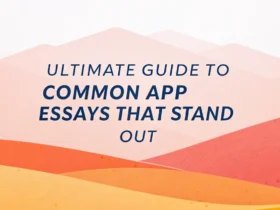
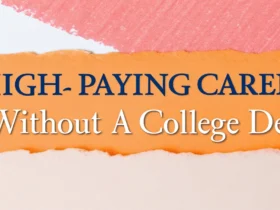

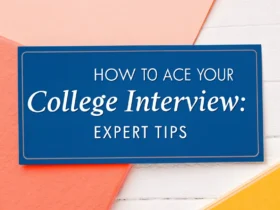
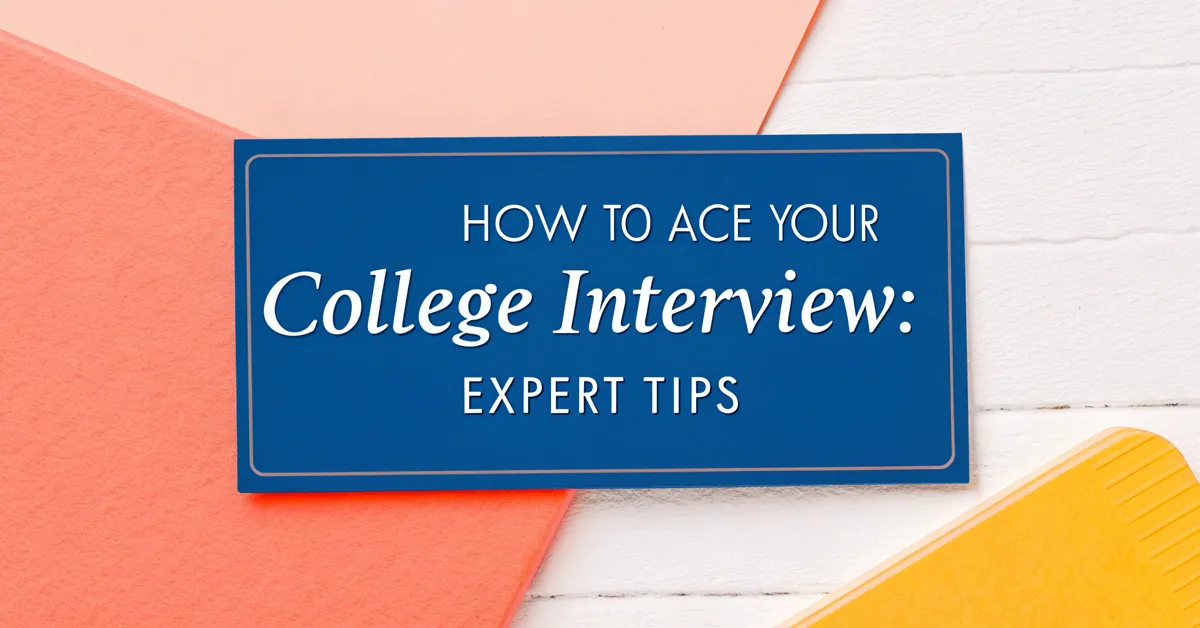
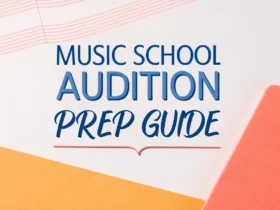






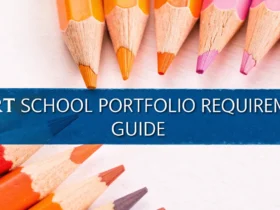
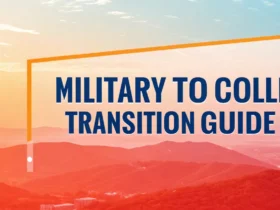
Leave a Reply
View Comments